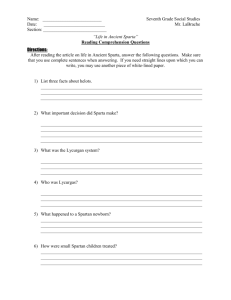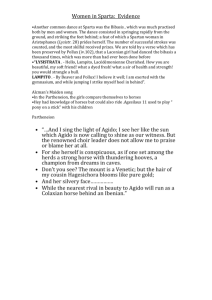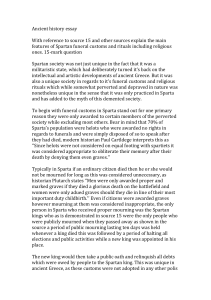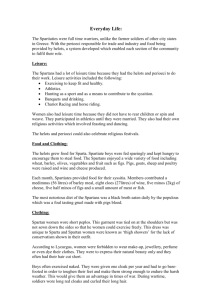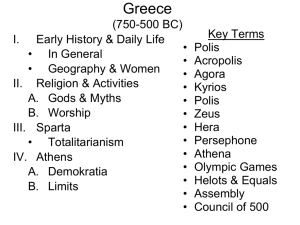Spartan Kings: Religious Roles & Funerary Customs
advertisement
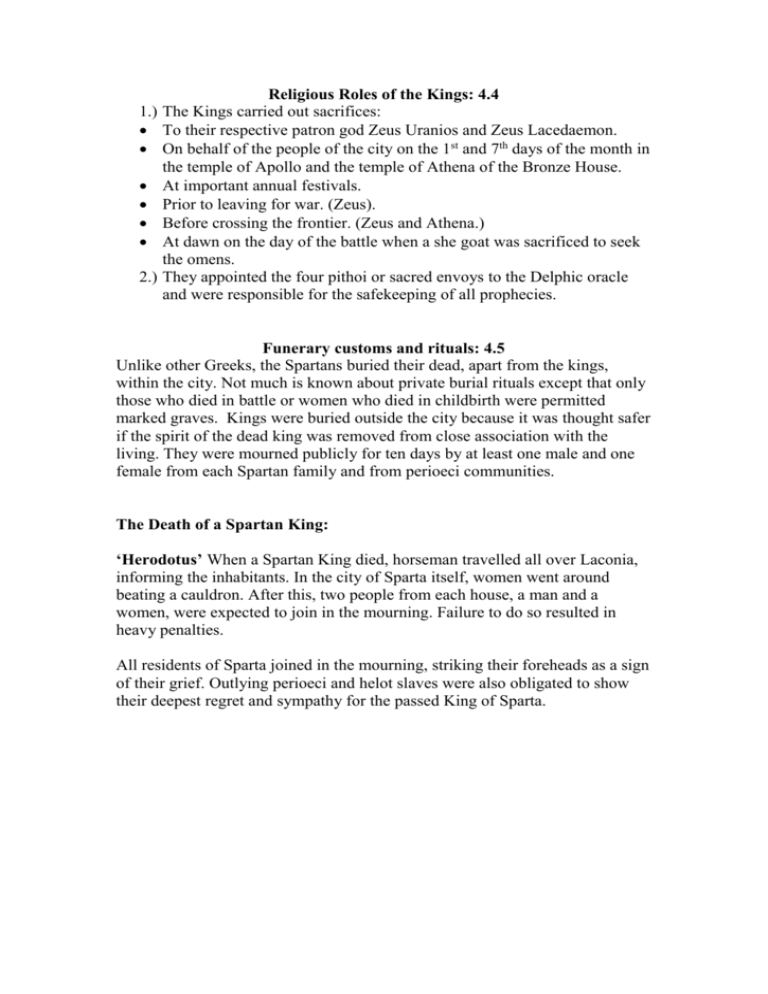
Religious Roles of the Kings: 4.4 1.) The Kings carried out sacrifices: To their respective patron god Zeus Uranios and Zeus Lacedaemon. On behalf of the people of the city on the 1st and 7th days of the month in the temple of Apollo and the temple of Athena of the Bronze House. At important annual festivals. Prior to leaving for war. (Zeus). Before crossing the frontier. (Zeus and Athena.) At dawn on the day of the battle when a she goat was sacrificed to seek the omens. 2.) They appointed the four pithoi or sacred envoys to the Delphic oracle and were responsible for the safekeeping of all prophecies. Funerary customs and rituals: 4.5 Unlike other Greeks, the Spartans buried their dead, apart from the kings, within the city. Not much is known about private burial rituals except that only those who died in battle or women who died in childbirth were permitted marked graves. Kings were buried outside the city because it was thought safer if the spirit of the dead king was removed from close association with the living. They were mourned publicly for ten days by at least one male and one female from each Spartan family and from perioeci communities. The Death of a Spartan King: ‘Herodotus’ When a Spartan King died, horseman travelled all over Laconia, informing the inhabitants. In the city of Sparta itself, women went around beating a cauldron. After this, two people from each house, a man and a women, were expected to join in the mourning. Failure to do so resulted in heavy penalties. All residents of Sparta joined in the mourning, striking their foreheads as a sign of their grief. Outlying perioeci and helot slaves were also obligated to show their deepest regret and sympathy for the passed King of Sparta.
